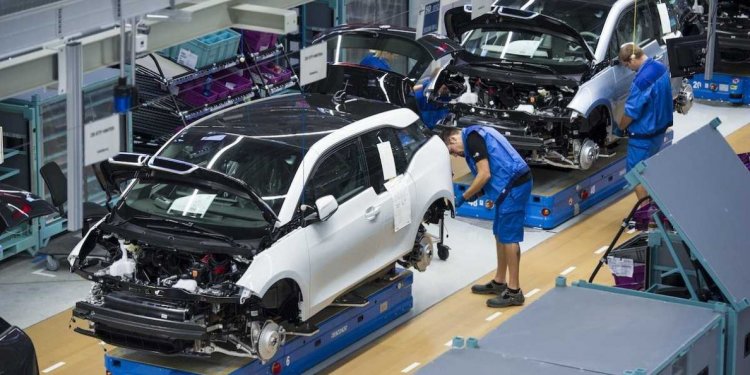
Automotive industry crisis
 Jens Schlueter/Getty Images
Jens Schlueter/Getty Images
Taxation hikes, devaluation, rising interest rates and reduced need in foreign areas have actually combined to drive the automotive business into a deep crisis. The decline of manufacturing, exports and product sales features accelerated in recent months, and it is having a critical knock-on impact on work and financial task.
The problems of automotive business reflect a mix of facets. Domestically, these have actually included a growth in taxes on deluxe models implemented in November 2013, which forced the tax price on most high-priced designs (which are imported) to 50%, in order to bolster the dwindling trade surplus. January's 15per cent peso devaluation has also boosted automotive rates (as much automobiles are imported from Brazil, as well as the usage of imported inputs on the market is predominant). The razor-sharp interest-rate hike that used January's devaluation in addition has paid off method of getting and need for credit and had a significant dampening influence on product sales, which was in fact boosted lately by comfortable access to credit. Externally, persistently poor development of the economic climate in Brazil, the primary location of Argentina's automobile exports, features strike the industry's product sales abroad.
Manufacturing, sales and exports are typical down
As a result, production, exports and domestic-sales indicators fell considerably in the 1st four months of the year. Regional automotive production fallen by 18percent 12 months on year in January-April, to 206, 581 units. Automobile production, which makes up just below two-thirds regarding the total, fell by 23%, while production of passenger-transport cars dropped by 43per cent and therefore of SUVs was down by 7%. Creation of cargo cars in fact rose by 6per cent, but they represent just 3% of complete production. The unsold stock of automobiles happens to be 200, 000 units, comparable to 90 days of sales. This is only around 10percent greater than the year-earlier duration, although fairly small upsurge in unsold cars reflects the regular stoppages at car-assembly flowers lately.
Sales inside domestic market dropped by 30%, to 202, 652 units. Sales of in your area put together cars were down by 26%, but product sales of imported cars fell by a lot more than twice that figure (59%), reflecting the considerable influence of devaluation while the current income tax hike on (brought in) luxury designs. Suggesting the outlook for customers is, if any such thing, worsening, the decline in sales has actually accelerated during the course of January-April, to achieve 40% in April.
Exports, at the same time, contracted by 19percent in January-April, to 106, 827 devices. Exports are highly dependent on the Brazilian marketplace, which makes up about significantly more than 80% of total exports. This reliance has-been cemented by agreements in framework of Mercado Común del Sur (Mercosur, the Southern Cone traditions union), which has generated tremendously incorporated manufacturing and product sales system. In this framework, synchronous economic downturns have actually exacerbated weaknesses into the automotive sectors in both countries. Talks are under method between the two nations to try to agree a brand new trade strategy, following the expiration this past year associated with the automotive complementarity agreement governing tariffs amongst the two nations, and, much more generally, to assist advertise recovery in the industry via a joint external-promotion strategy.
Knock-on effects
The slump in production and sales will trigger job losses. Relating to union quotes, around 12, 000 workers (out-of a complete of 100, 000 in the industry) are at threat of redundancy, and some employees have now been dismissed. Labour problems tend to be more serious inside auto-parts section: for small auto-parts companies, labour expenses represent 30-35% of production costs, that companies cannot sustain work during downturns. Labour problems are also impacting cars suppliers (of which you can find around 800), in addition to those who work in the logistics and transportation areas.
Given the industry's typical spillover impacts (it has been approximated that each brand-new work inside car business makes 3.7 additional jobs elsewhere), the slump will soon also be shown various other industries, such as for example metallurgy, aluminium, chemicals, plastics and cup. It's not clear as yet how the federal government promises to react. Some months ago, there were rumours the federal government would rescind or lessen the current automotive-tax enhance, but it has already been rejected by government associates. Economical directed credits could well be tried rather, but, amid acutely poor customer and company confidence, this will be very likely to only have a somewhat muted effect, at the least for a while, and a quick data recovery does not look like regarding cards.

















